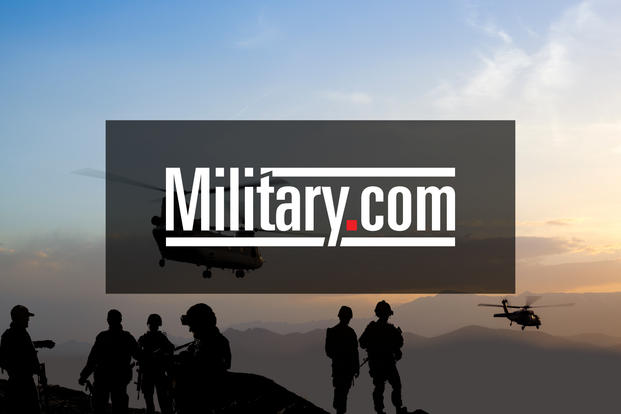The three Baltic countries that could be left to the mercies of Russia during a Donald Trump presidency reacted with alarm and disbelief on Thursday to his suggestion that the U.S. might not automatically defend NATO states pursuant to the landmark treaty.
"This won't be good for NATO unity or the security situation," said Ojars Kalnins, chairman of the Foreign Affairs Committee in Latvia's parliament. "In principle, he is saying the U.S. will not fulfill its promises or obligations," he said of Trump's plan to base U.S. support on how much alliance members spend on defense.
Kalnins took to Twitter to mock Trump's remarks. "Too bad the [New York] Times didn't ask Trump if he would defend NATO member Slovenia if attacked," Kalnins said in reference to the Slovenian heritage of Trump's wife, Melania.
Estonian President Toomas Hendrik Ilves said on Twitter that his country was one of five NATO countries in Europe to meet its 2 percent defense spending quota and also noted that Estonia met its own NATO treaty obligations in backing the U.S. in Afghanistan. The country's small contingent "fought with no caveats" in Afghanistan, Ilves said.
The reaction of Lithuanian President Dalia Grybauskaite was one of disbelief that any U.S. president would shirk treaty obligations. "Regardless of who becomes the next president, we trust America," she said. "It has always defended nations under attack."
The Baltic states -- all members of NATO -- were responding to Trump's remarks in an interview with The New York Times in which he appeared to put conditions on the U.S. living up to Article 5 of the NATO treaty requiring all 28 states to come to the defense of a member under attack.
"We are going to take care of this country first," the Republican presidential nominee said, "before we worry about everyone else in the world."
Trump singled out the Baltic states, saying as president he would decide whether to defend them against attack after reviewing whether "they have fulfilled their obligations to us."
"I would prefer to be able to continue" commitments to NATO, he said, but only if the allies stop taking advantage of U.S. willingness to foot the bills of the alliance. "If they fulfill their obligations to us, the answer is 'Yes,' " he said about coming to the defense of allies.
If the Baltic states failed to contribute more, "Yes, I would be absolutely prepared to tell those countries, 'Congratulations, you will be defending yourself,' " he said.
The Baltic states and Poland have particular concerns on Russian President Vladimir Putin's intentions following his annexation of Crimea and support for separatists in Ukraine. Putin angrily opposed NATO's expansion to include Poland and the Baltic states, and he has stepped up military exercises on their borders while stressing that he has an obligation to protect the large Russian ethnic minority in Latvia.
Last month at the NATO summit in Warsaw, U.S. President Barack Obama and the allies agreed to boost troop deployments to the Baltic states and Poland as a deterrent to Russia.
Putin's spokesman, Dmitry Peskov, sidestepped Thursday on Trump's remarks, saying talk of Russia attacking other countries was "hypothetical." He added, "I would not want to comment on the obligations of other countries to the United States."
At alliance headquarters in Brussels, NATO Secretary General Jens Stoltenberg quickly rebutted Trump's remarks. Stoltenberg said he wanted to avoid commenting on a U.S. election but added, "solidarity among allies is a key value for NATO. This is good for European security and good for U.S. security. We defend one another."
Retired Adm. James Stavridis, the former NATO Supreme Allied Commander who has been rumored to be a potential vice presidential choice for Hillary Clinton, tweeted that Trump's NATO comments would bring "great cheer in the Kremlin. I can hear Vladimir Putin chortling from here."
Trump's remarks gave fodder to critics in both parties on the eve of his address to the Republican National Convention accepting the nomination.
Sen. Lindsey Graham, a South Carolina Republican who was one of the losing candidates in the primaries, said that Putin should be "a very happy man" after Trump's remarks. Graham charged that Trump was telling the Russians and "other bad actors that the United States is not fully committed to supporting the NATO alliance."
Sen. Ben Sasse, a Nebraska Republican and a leader of the "Never Trump" faction in the party, said, "Our friends should draw strength and our adversaries should take pause from this simple fact: Americans keep our word."
The campaign of Hillary Clinton, the presumptive Democratic nominee, pounced on Trump's remarks as another indication that he was unfit to lead. "The President is supposed to be the leader of the free world," senior Clinton adviser Jake Sullivan said in a statement. "Donald Trump apparently doesn't even believe in the free world.
"Republicans, Democrats and Independents who helped build NATO into the most successful military alliance in history would all come to the same conclusion -- Donald Trump is temperamentally unfit and fundamentally ill-prepared to be our Commander-in-Chief," Sullivan said.
Trump campaign chairman Paul Manafort, in an interview with the Daily Beast, accused The New York Times of misquoting Trump, but a transcript posted by the Times showed that the quotes were accurate.
At the White House, Press Secretary Josh Earnest said in response to questions that the U.S. remained committed to defending NATO allies. "There should be no mistake or miscalculation made about this country's commitment to our trans-Atlantic alliance," he said.
-- Richard Sisk can be reached at Richard.Sisk@Military.com.



























